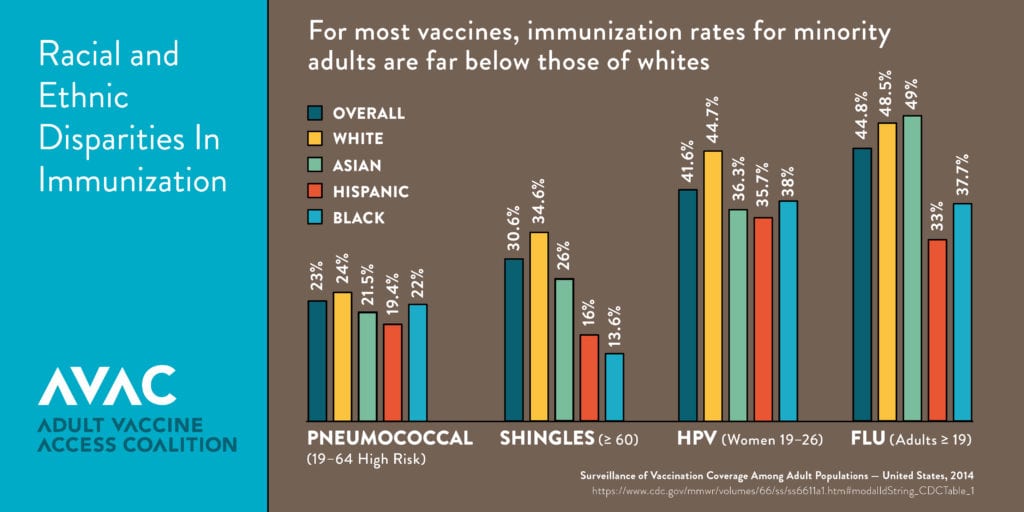AVAC is committed to improving immunization rates among all adults.
Vaccines have been consistently underutilized in the adult population and these disparities are even greater when looking at at-risk populations – including seniors, communities of color, limited English proficient persons, pregnant women, and people with chronic illness. Targeted efforts are needed to address the specific challenges that vulnerable groups face in order to close the immunization gap and improve adult immunization coverage rates overall.

Despite the health benefits that result from implementation of ACIP recommendations, vaccines have been consistently underutilized in the adult population and lag far behind the Healthy People 2030 goals. These disparities are even greater when looking at at-risk populations – including older adults, those living in rural areas, those living below the poverty line, communities of color, limited English proficient persons, and people with chronic illness.
Though the childhood vaccination program in the United States has been largely successful at reducing or eliminating racial and ethnic disparities in vaccination coverage for children, this is not true for adults. Black, Asian, and Latino adults receive recommended vaccinations at rates far below those of Whites for all adult-recommended vaccines. For example, 32% of White adults receive the shingles vaccine, compared to only 16.5% of Asian adults, 14.6% of Latino adults, and 11.6% of Black adults.
At-risk populations, including the sick, older adults, and pregnant women, also lag behind Healthy People 2020 adult immunization goals, yet are particularly vulnerable to the adverse health consequences of vaccine preventable illness. For example, pregnant women of color, particularly Black women, and women who live below the poverty line, have up to 20% lower vaccination rates than White women or those with higher socioeconomic status. Barriers to access through public health programs, such as variations in immunization coverage under state Medicaid programs and significant beneficiary cost sharing under Medicare Part D, hinder public health and provider efforts to improve rates among these subgroups.

AVAC has shown a strong commitment to promoting racial and ethnic vaccine equity, helping to assure that everyone in the United States can access vaccines that protect them from disease.
Laura Lee Hall
Center for Sustainable Health Care Quality and Equity, National Minority Quality Forum
